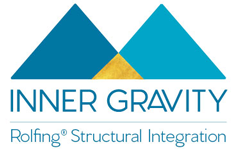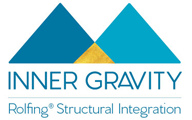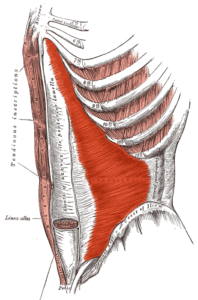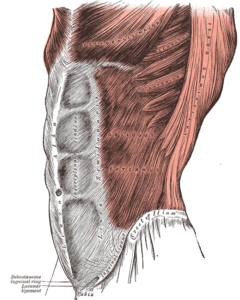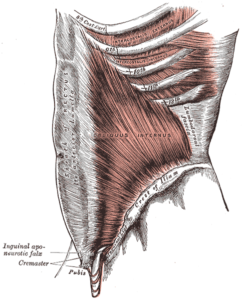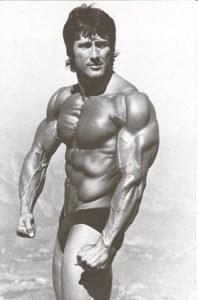Over the years I have seen many clients come and complain of back pain, especially low back pain. Most of the time it comes and goes, or never fully goes away. It is chronic. And most of the time they admit they’ve been told they need more core strength.
Core strength?
…
Most of those people were already doing regular yoga, pilates or cycling. They were already strong.
Some experts said it wasn’t about strength but about the timing of firing muscles. Core is usually defined as the transverse abdominis,
the external obliques
and the internal obliques.
In the original study that triggered this core strength frenzy, back in the 90s, they found a slight delay in the firing of the transverse abdominis (we’re talking 20 miliseconds!) in some people with chronic low back pain, and they thought maybe this delay was causing pain. Did they thing maybe the delay was caused by the pain? Or maybe it was because different bodies fire differently? It seems not.
Anyway, I didn’t think my clients needed more core strength, and I still don’t. Fortunately it seems I was right. A review of a large body of studies about “core strength” and its effect on chronic low back pain showed that
there is no evidence increased core strength affects pain level in the long term.
Most studies found some pain relief in the short term, but after 6 months, there was no difference in pain level between the core strength group and the control group.
http://www.cor-kinetic.com/core-stability-does-it-work-for-lbp-a-look-at-the-evidence/
Most of the time the timing of the firing was not affected by exercises meant to improve it! Even when it did improve by 10 to 15 milliseconds, it didn’t affect the pain level.
What is more and more obvious from scientific studies is something that has been sort of self evident for decades in the psychological world:
the correlation between chronic pain and happiness.
In another study, they looked at job satisfaction and its relationship to back pain. The more you resent your work the more likely you are to develop back injury.
I am not saying pain is all in your head. There is usually an event that creates pain, but why does is become chronic? It might have something to do with how you view your recovery or your overall satisfaction with your life, or some aspect of your life.
Here’s an example: my son has a little-understood form or hearing impairment. The baseline for my stress level is higher than before I had him -first because he’s 2!!!- and second because it’s stressful not to know what his future is going to look like.
That makes me a good candidate to develop back pain, or neck pain, and in all likelihood no amount of exercise would cure my back pain (except for the fact that endorphins from exercise fight depression) I would have to deal with the pain of my son’s disability to resolve my own back pain.
But back to my clients, you. No, you don’t need to have an iron belt of abdominal muscles to get rid of back pain. You DO want decent tone in your abdomen though, it’s important to support your organs and to have stability, but don’t kill yourself on a reformer.
It is possible to have too much core strength. As usual too much of a good thing is still too much! Have you looked closely at bodybuilders? To begin with they have back pain too! From lifting too much too fast or from lack of flexibility.
Lack of flexibility.
Yes if you get too toned, too strong around your spine, guess what? it can’t move anymore!
It can’t flex, because the back muscles are so strong and tight it won’t let it. It can’t extend because the abs are so taut they won’t let it. And it can’t do its beautiful side bending and rotation dance when you need it either, because once again those strong muscles are holding it too tight. I know I’m choosing an extreme example to illustrate my point.
But you wouldn’t believe what developing a six pack does to most bodies. The rectus abdominis and obliques become so taut that they shorten the front of the body:
Here is Franck Zane who became Mr Olympia in the late 70s (after Arnold). If you look at these guys there isn’t much room for movement around their spine. I am not judging them, they love what they do, and it’s great, I’m simply pointing to the fact that they too have back pain (and shoulder pain).
So next time somebody tells you that you need more core strength, question it. There are a thousand reasons to develop back pain, and I’m pretty sure Rolfing can help you with whatever is going on, because my goal is not to strengthen you with force but to strengthen you with proper alignment,length, flexibility and ease of motion…
